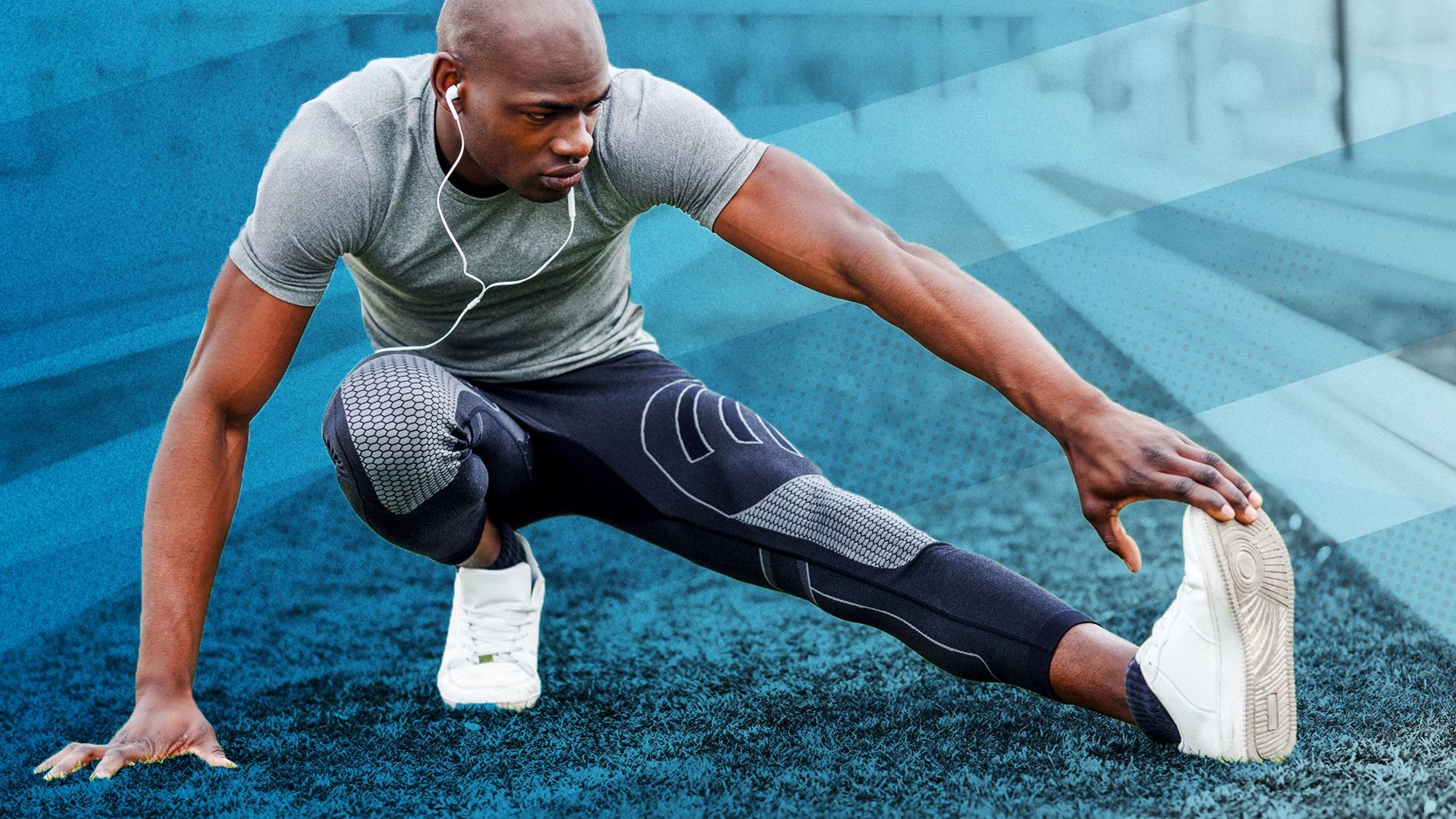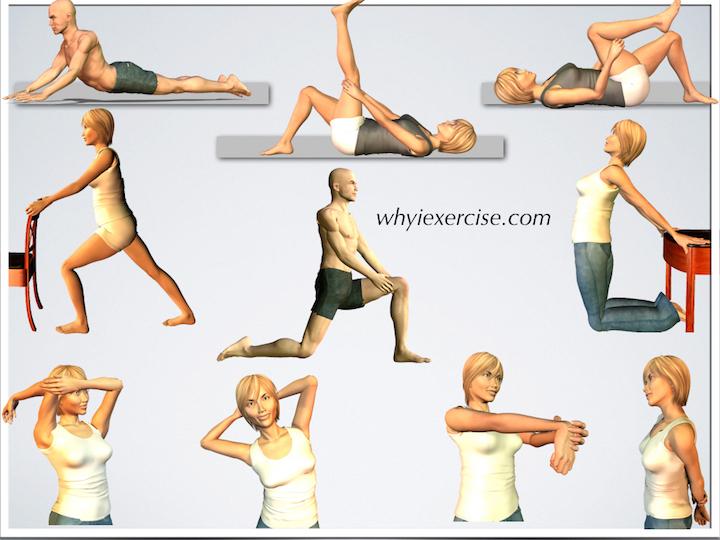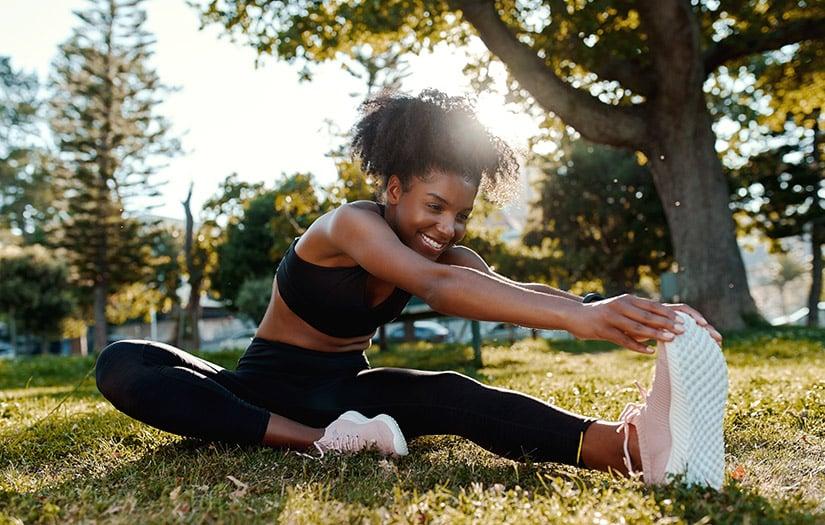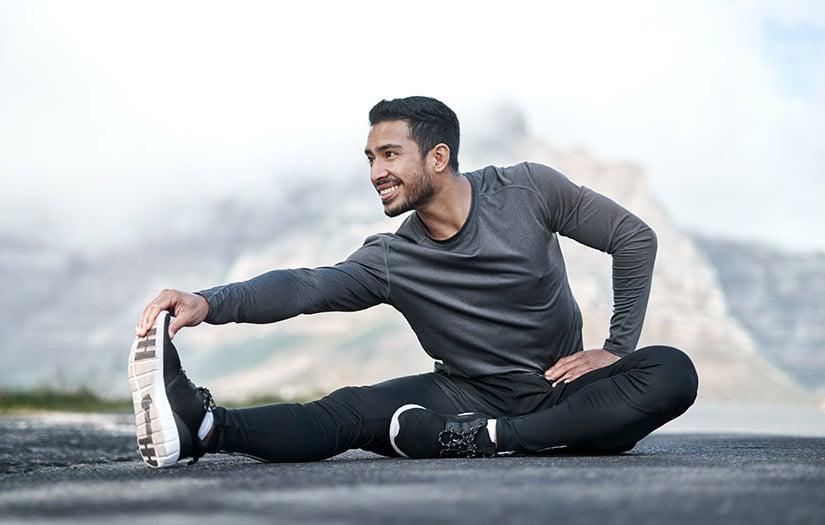Unlocking the Benefits: Stretching and Enhanced Blood Flow
In a world that often prioritizes speed over stillness, the simple act of stretching has been relegated to a warm-up before exercise or a remedy for a long day at the desk. Yet, beneath its surface simplicity lies a treasure trove of benefits that extends far beyond mere physical versatility. Stretching, when practiced thoughtfully, has the remarkable ability to enhance blood flow—a vital component for overall health and vitality. As we delve into the intricate relationship between stretching and circulatory health, we will unlock the science and practical applications that reveal how this age-old practise can invigorate our bodies, boost our energy, and foster a profound connection between body and mind. Join us on this exploration of how the gentle act of stretching can become a powerful catalyst for enhancing blood flow, ultimately contributing to our well-being and quality of life.
Understanding the Science Behind Stretching and Blood Circulation
Stretching is more than just a feel-good activity; it plays a crucial role in enhancing blood circulation throughout the body.when muscles are stretched, they experience a slight rupture in their fibers, which sets off a chain reaction that encourages the formation of new blood vessels in the area. This biological response not only improves the *elasticity* of the muscles but also promotes the delivery of oxygen and nutrients to tissues more efficiently. Regular stretching can increase the metabolic rate of the muscles, resulting in improved recovery times and overall functional performance.
Moreover, efficient blood circulation is vital for maintaining overall health, as it supports various physiological processes. Enhanced blood flow can led to numerous benefits, including:
- Reduced Muscle Tension: Stretching helps in alleviating tight muscles, resulting in a more relaxed state.
- Improved Joint Health: Increased circulation promotes synovial fluid production, which lubricates the joints.
- Enhanced nutrient Delivery: Better blood flow ensures that muscles receive the essential nutrients needed for growth and repair.
- Stress Relief: Stretching triggers the release of endorphins, which can reduce stress and promote emotional well-being.
To visualize the benefits of stretching and blood circulation, consider the following table:
| Benefit | Description |
|---|---|
| Increased Flexibility | Enhanced range of motion in muscles and joints. |
| Reduced Injury Risk | Proper circulation reduces the chance of strains and sprains. |
| Faster Recovery | Efficient nutrient transport leads to quicker healing. |

Practical Techniques to Enhance Your Stretching Routine
Incorporating specific techniques into your stretching routine can considerably amplify its benefits, notably in improving blood flow. Start by integrating dynamic stretching before your workouts to prime your muscles and enhance circulation. This involves moving parts of your body through a full range of motion in a controlled manner, which not only warms up your muscles but also increases heart rate.Consider the following dynamic stretches:
- Leg Swings: Swing your legs forward and backward while balancing on one leg.
- arm Circles: Make circular motions with your arms to loosen shoulder joints.
- Torso Twists: Gently twist your torso side to side to engage your core.
After your workout, focus on static stretching to enhance flexibility and promote recovery. Holding stretches for longer periods allows your muscles to relax and encourages blood flow to areas that may have tightened during activity. To effectively incorporate static stretches, consider utilizing these techniques:
- Breathe Deeply: inhale deeply before each stretch and exhale as you hold the position.
- Focus on Muscle Groups: Target major muscle areas such as hamstrings, quadriceps, and shoulders.
- Hold for 20-30 Seconds: Give your muscles adequate time to relax and elongate.

the Role of Stretching in Preventing Injury and Promoting Recovery
Stretching plays a pivotal role in both injury prevention and the recovery process, serving as a proactive strategy to keep muscles and joints healthy. When muscles are flexible, they are less prone to strains and pulls.Engaging in regular stretching routines encourages a greater range of motion and helps warm up the muscles prior to strenuous activities. Achieving this flexibility comes with numerous benefits, including:
- Improved circulation: Stretching promotes blood flow, delivering nutrients and oxygen to muscles.
- Enhanced athletic performance: Increased flexibility can lead to better overall movement patterns.
- Reduced muscle soreness: Stretching post-activity helps to alleviate tension and reduce lactic acid buildup.
Incorporating dynamic stretching before workouts and static stretching afterward fosters an environment conducive to muscle repair. Not only does this practice help in mitigating the risk of injuries, but it also aids in faster recovery by facilitating better blood circulation. This improved blood flow allows the body to effectively flush out toxins and supply essential nutrients, allowing for quicker healing. To illustrate, consider the following table that outlines a simple stretching routine and its corresponding benefits:
| Stretch Type | primary Benefit |
|---|---|
| Hamstring Stretch | Improves leg flexibility |
| Quadriceps Stretch | Enhances knee stability |
| Shoulder Stretch | Reduces upper body tension |
| Hip Opener Stretch | Increases hip mobility |

Integrating Stretching into Daily Life for Long-Term Benefits
Incorporating stretching into your daily routine doesn’t have to be a chore; it can be a refreshing addition that enhances both your physical and mental well-being. Here are some simple ways to seamlessly integrate stretching into your life:
- Morning Routine: Start your day with 5-10 minutes of gentle stretches to awaken your muscles and promote circulation.
- At Work: Take short breaks every hour to perform a few stretches, particularly targeting the neck, shoulders, and lower back, to alleviate tension from prolonged sitting.
- pre/Post-Workout: Always incorporate dynamic stretching before any exercise and static stretches afterward to optimize blood flow and recovery.
- Bedtime Wind Down: Finish your day with some calming stretches to relax your body and mind, helping you to sleep better.
Consistency is the key to unlocking the long-term benefits of stretching. To assist with this journey, consider setting reminders or utilizing apps that encourage regular stretching throughout the day. Here’s a simple table to help track your progress and keep you motivated:
| Day | Stretching Duration | Notes |
|---|---|---|
| Monday | 10 minutes | Focused on hamstrings and back |
| Tuesday | 15 Minutes | incorporated yoga poses |
| Wednesday | 10 Minutes | Neck and shoulder relief |
| Thursday | 20 Minutes | Full body stretch session |
| Friday | 15 Minutes | Focused on hip flexors |
In Retrospect
unlocking the benefits of stretching and enhanced blood flow is not merely about the physical act itself; it is an invitation to embrace a holistic approach to well-being. As we journey through the demands of daily life, we must remember the invaluable role that our bodies play in supporting us. Stretching, when incorporated into our routines, can serve as a powerful tool for rejuvenation and vitality, opening pathways not only for improved circulation but also for mental clarity and emotional balance.
By nurturing our muscles and promoting better blood flow, we not only facilitate our bodies’ inherent healing processes but also enhance our overall quality of life. Whether you are an athlete striving for peak performance or someone navigating the complexities of everyday life, the benefits of stretching transcend boundaries, becoming a global language of self-care.So take a moment each day to stretch—and let the flow of wellness cascade through every aspect of your being. After all, in the delicate dance between movement and stillness, we find the profound connection that invigorates both body and mind.





Leave a Reply